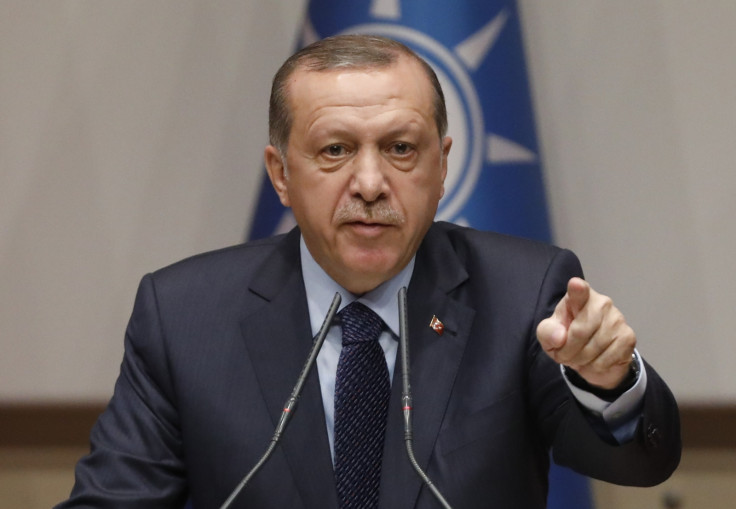Turkey's Erdogan calls Israel a 'terrorist state' that 'kills children'
Israeli Prime Minister Benjamin Netanyahu shot back at Erdogan and said he does not need a lecture from the Turkish leader.
Turkey's President Recep Tayyip Erdogan has stepped up his attack on Israel over the recent developments surrounding Jerusalem and called the Jewish-majority country a "terrorist state" which "kills children".
Erdogan has emerged as a fierce critic of the US decision to unilaterally recognise Jerusalem, an ancient city considered holy by both Israelis and Palestinians alike, as the Israeli capital. President Donald Trump's decision has already jolted the Middle East and the Arab world has reacted strongly to it.
Speaking against this backdrop, the Turkish leader said in a speech from the city of Sivas: "Palestine is an innocent victim... As for Israel, it is a terrorist state, yes, terrorist!"
Erdogan has also called a meeting of the Organisation of Islamic Cooperation (OIC) in Istanbul on Wednesday, 13 December, to discuss the issue.
"Jerusalem is the apple of our eye. We will not abandon it to the child-murderer state. We will not abandon it to an occupier state," continued the Turkish president, who had earlier warned that Jerusalem would be a "red line" for Muslims across the world.
Israeli Prime Minister Benjamin Netanyahu quickly shot back at Erdogan pouring scorn on him.
Addressing a joint press conference with French President Emmanuel Macron, he said: "I am not used to receiving lectures about morality from a leader who bombs Kurdish villagers in his native Turkey, who jails journalists, who helps Iran go around international sanctions, and who helps terrorists, including in Gaza, kill innocent people. That is not the man who is going to lecture us."
As the war of words continued, the Turkish side responded strongly to Netanyahu's remarks. Erdogan's spokesman Ibrahim Kalin said: "Instead of taking on our country and our leader, the Israeli authorities would do better to end their occupation of the Palestinian territories."
Erdogan had earlier likened Israeli policies to the apartheid system in South Africa.























